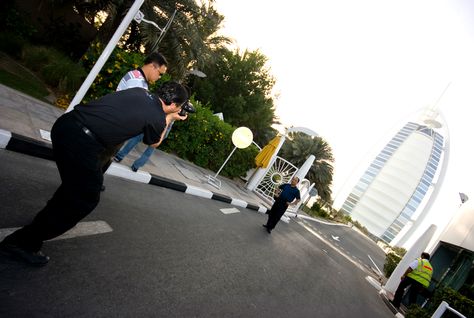The UAE is leading the Middle East in terms of their travel and tourism industry competitiveness, according to a new World Economic Forum report.
The UAE ranked 28th out of 140 nations in the fifth Travel & Tourism Competitiveness Report which was topped by Switzerland.
While the UAE moved up two places compared to the previous ranking in 2011, Bahrain, hit by months of unrest since the last list, slumped 15 places.

| Advertisement |
The Gulf kingdom, ranked 40th globally in 2011, fell to 55th on the back of the impact of the uprisings on its tourism industry.
Qatar was ranked the second most competitive Gulf tourism market and was placed 41st globally, an improvement of one place on 2011.
In the run up to FIFA World Cup 2022, Qatar is planning to open 21 new hotels in Doha, due for completion in the next five years.
Oman, where the hotel sector is set to grow by more than 60 percent if all 4,613 rooms in the country's total active pipeline open, rose four places in the 2013 ranking, up to 57th.
Saudi Arabia which, according to the latest UNWTO World Tourism Barometer, saw a 14 percent growth in tourism last year, the fifth best performer globally, remained unchanged in the World Economic Forum list at 62nd.
The lowest ranked Gulf tourism market was Kuwait which failed to make the top 100, falling six places to 101st compared to 2011's 95th position.
Globally, Switzerland, Germany and Austria led the world in terms of their travel and tourism industry competitiveness with Spain, the United Kingdom, the United States, France, Canada, Sweden and Singapore completing the top 10.
The biennial report showed that New Zealand and Japan improved strongly; the former climbing to 12th from 19th and the latter moving up eight positions to 14th.
Emerging market economies reported mixed levels of progress, with Brazil and India being the only BRIC nations to move up in the rankings.
In this category, rising stars included Panama, climbing from 56th to 37th, and the Philippines, which climbed from 94th to 82nd on the back of policy improvements supporting the industry.
Jennifer Blanke, head of the Global Competitiveness and Benchmarking Network at the World Economic Forum, said: “Industry resilience has been driven by the growth of the middle class in emerging markets, although advanced economies too are displaying positive momentum.
"Better policies, harnessing technology and facilitating the movement of people over borders will allow the industry to capitalise on this tailwind and support rising prosperity into the future.
Thea Chiesa, head of Aviation, Travel & Tourism Industries, World Economic Forum, added: “The travel and tourism industry has weathered the global downturn and is now playing an important role in helping tackle serious global challenges, including youth unemployment, economic development and environmental sustainability.
"The challenge for the industry and its stakeholders today is to maintain this powerful contribution to economic growth and employment, while continuing to proactively pursue the shared goals of facilitating global travel and tourism and protecting host cultures, identities and environments."
The Travel & Tourism Competitiveness Index covered 140 countries and used a combination of data from publicly available sources, international travel and tourism institutions and experts.









 Search our database of more than 2,700 industry companies
Search our database of more than 2,700 industry companies









